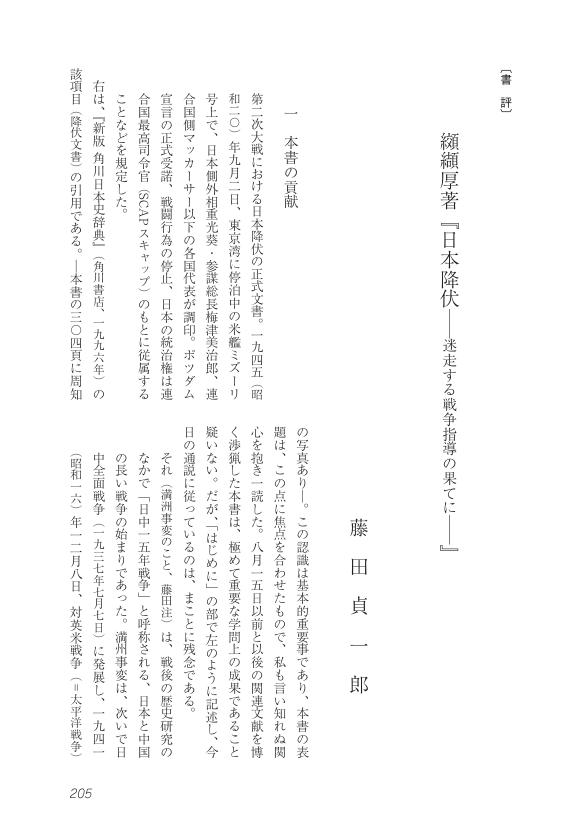34 0 0 0 IR 江戸時代の家制度と女性の地位
- 著者
- 藤田 貞一郎 フジタ テイイチロウ Fujita Teiichiro
- 出版者
- 同志社大学商学会
- 雑誌
- 同志社商学 = Doshisha Shogaku (The Doshisha Business Review) (ISSN:03872858)
- 巻号頁・発行日
- pp.101-113, 1980-02-15
研究同志社大学商学部創立三十周年記念論文集
4 0 0 0 OA 天保八年和歌山藩下級武士女房の日記
- 著者
- 藤田 貞一郎 Teiichiro Fujita
- 出版者
- 同志社大学商学会
- 雑誌
- 同志社商学 = Doshisha Shogaku (The Doshisha Business Review) (ISSN:03872858)
- 巻号頁・発行日
- vol.26, no.1, pp.1-31, 1974-07-20
資料
2 0 0 0 OA 江戸時代の家制度と女性の地位
- 著者
- 藤田 貞一郎 Teiichiro Fujita
- 出版者
- 同志社大学商学会
- 雑誌
- 同志社商学 = Doshisha Shogaku (The Doshisha Business Review) (ISSN:03872858)
- 巻号頁・発行日
- pp.101-113, 1980-02-15
研究
2 0 0 0 IR 京都財界の「工業都市京都」構想--その過去と現在
- 著者
- 藤田 貞一郎
- 出版者
- 同志社大学
- 雑誌
- 同志社商学 (ISSN:03872858)
- 巻号頁・発行日
- vol.46, no.1, pp.1-18, 1994
研究
1 0 0 0 OA 一九八七年の日本経営史
1 0 0 0 OA 大正期における寺田財閥の成長と限界
- 著者
- 藤田 貞一郎
- 出版者
- 経営史学会
- 雑誌
- 経営史学 (ISSN:03869113)
- 巻号頁・発行日
- vol.15, no.2, pp.1-29,i, 1980-08-30 (Released:2009-11-06)
This article describes the rise and fall of what might be termed a local zaibatsu which was founded by Terada Jinyomo (1853-1931). During the Tokugawa era, the Terada family manufactured sake just south of Osaka in the Kishiwada district of Senshu, where cotton spinning had long been practical as a subsidiary industry in agricultural households.During the Meiji period, Terada Jinyomo invested profits from sake manufacture in many new industries, such as spinning, banking, and railroad construction. In 1894, he established Kishiwada Cotton Spinning Co. Ltd., which was to become the most successful of his new ventures, especially in the rapidly expanding China market.Terada Jinyomo was born into a large family. He had six brothers and a sister, but all but one of these brothers, Motokichi, were step brothers born after Jinyomo's mother remarried following the death of the first husband. Significantly, Jinyomo excluded not only his step-brothers and their families but also his very talented and fullblooded brother, Motokichi, from the Terada Holding Company established in December 1920 after the spinning company had reaped unprecedented profits during world war One. Jinyomo allowed only members of his own nuclear family, that is himself, his wife, and their children, to become stockholders in the newly founded holding company. His brother, Motokichi, followed his lead by setting up his own holding company, the Sano Cotton Spinning Company, with his own nuclear family members as stockholders in the same month and year.Jinyomo's decision to separate himself from his more distant relatives and to not rely on lineage ties proved to be a fatal errors because although he had bought property in Shanghai in 1923 in the hope of establishing there, this plan was never realized. At home, he failed to make the switch to manufacturing newer products like rayon.Perhaps Jinyomo was more narrow-minded and conservative than he himself believed or understood.
1 0 0 0 OA 纐纈厚著『日本降伏―迷走する戦争指導の果てに―』
- 著者
- 藤田 貞一郎
- 出版者
- 大阪経済大学日本経済史研究所
- 雑誌
- 経済史研究 (ISSN:1344803X)
- 巻号頁・発行日
- vol.18, pp.205-214, 2015-01-31 (Released:2018-09-01)
1 0 0 0 OA 「支那事変」から「大東亞戦争」へ
- 著者
- 藤田 貞一郎
- 出版者
- 大阪経済大学日本経済史研究所
- 雑誌
- 経済史研究 (ISSN:1344803X)
- 巻号頁・発行日
- vol.17, pp.177-187, 2014-01-31 (Released:2018-10-01)
1 0 0 0 OA 訓詁学再考
- 著者
- 藤田 貞一郎
- 出版者
- 大阪経済大学日本経済史研究所
- 雑誌
- 経済史研究 (ISSN:1344803X)
- 巻号頁・発行日
- vol.14, pp.205-215, 2011-01-20 (Released:2018-10-01)
1 0 0 0 OA 石井寛治教授による書評へのリプライ
- 著者
- 藤田 貞一郎
- 出版者
- 大阪経済大学日本経済史研究所
- 雑誌
- 経済史研究 (ISSN:1344803X)
- 巻号頁・発行日
- vol.8, pp.181-190, 2004-03-31 (Released:2018-12-01)
1 0 0 0 OA 近代日本における「営業の自由」観 基礎資料発掘の試み
- 著者
- 藤田 貞一郎
- 出版者
- 大阪経済大学日本経済史研究所
- 雑誌
- 経済史研究 (ISSN:1344803X)
- 巻号頁・発行日
- vol.5, pp.92-109, 2001-03-31 (Released:2019-02-01)
1 0 0 0 OA 「世紀末」に寄せて
- 著者
- 藤田 貞一郎
- 出版者
- 大阪経済大学日本経済史研究所
- 雑誌
- 経済史研究 (ISSN:1344803X)
- 巻号頁・発行日
- vol.2, pp.194-203, 1998-03-30 (Released:2019-03-01)
1 0 0 0 「支那事変」から「大東亞戦争」へ
- 著者
- 藤田 貞一郎
- 出版者
- 大阪経済大学
- 雑誌
- 經濟史研究 (ISSN:1344803X)
- 巻号頁・発行日
- vol.17, pp.177-187, 2014-01-31
1 0 0 0 纐纈厚著『日本降伏 : 迷走する戦争指導の果てに』
- 著者
- 藤田 貞一郎
- 出版者
- 大阪経済大学
- 雑誌
- 經濟史研究 (ISSN:1344803X)
- 巻号頁・発行日
- vol.18, pp.205-214, 2015-01-31
1 0 0 0 近世初期の村落構造--桑名藩勢州朝明郡中野村の場合
- 著者
- 藤田 貞一郎
- 出版者
- 大阪大学大学院経済学研究科
- 雑誌
- 大阪大学経済学 (ISSN:04734548)
- 巻号頁・発行日
- vol.10, no.4, 1961-04
1 0 0 0 IR 京都財界の「工業都市京都」構想--その過去と現在
- 著者
- 藤田 貞一郎
- 出版者
- 同志社大学商学会
- 雑誌
- 同志社商学 (ISSN:03872858)
- 巻号頁・発行日
- vol.46, no.1, pp.p148-131, 1994-06
研究






